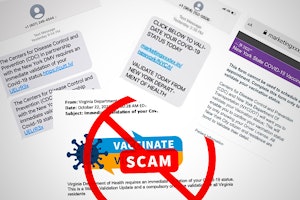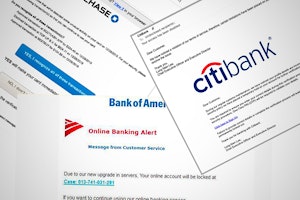
Received a Text/Email Asking You to Validate Your COVID-19 Status? It's a Scam
Scammers are impersonating government departments in an attempt to steal your information in this new COVID-19 scam.

How to Identify a Fake Email from Your Bank & Protect Yourself
Scammers impersonate well-known banks, such as Citibank and Chase, to trick you into giving up your sensitive information—learn how to beat these scams.

Recognize Fake Bank Reps Calling to Steal Your Information
A call from your bank isn't always legitimate—imposters pretend to represent your bank to steal your information and money.

Vishing Scams: What They Are and How to Protect Yourself
In 2020, almost $20 billion was lost to phone scammers in the U.S. alone. With 165 million robocalls being made every day, it's hard not to be targeted.

How the Nigerian Prince Scam Has Evolved & How to Protect Yourself
Arm yourself with information on how this scam works and the red flags to watch out for to protect your bank account from these thieves.

Extortion Schemes: How Scammers Impersonate Law Enforcement & What To Do
Scammers use fear tactics and impersonate law enforcement to trick you into sending them money but armed with the right knowledge, you can beat them.

Red Flags of Fake Credit Union Emails: Prevent Phishing
Scammers have turned their phishing attempts to members or credit unions by sending out fake emails hoping to get their hands on valuable personal data.

Personal Loan Scams: Beware of Fake Offers for Loans
When an offer for a personal loan with great rates seems too good to be true, it often is, especially if you weren't the one who contacted them first.

Red Flags of Fake PayPal Emails About Your eBay Transactions
Fake PayPal emails regarding your eBay transactions are sent by scammers to fake payments and steal your information.

Dangerous Netflix Scam Emails: How to Identify & Beat These 'Netflix Suspension' Scams
That Netflix email may seem genuine, but be sure to look for any red flags of a scam so you don't fall victim to identity theft.